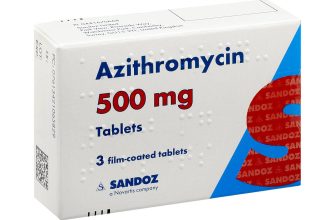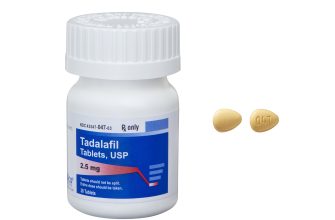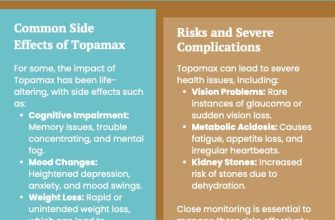Remeron (mirtazapine) can be a helpful medication for some individuals experiencing depression, particularly those who also struggle with sleep or appetite issues. It’s an atypical antidepressant, meaning it works differently than many other common antidepressants, targeting specific brain receptors to improve mood, sleep, and appetite.
However, Remeron isn’t a universal solution. Its efficacy varies greatly from person to person. While some experience significant symptom relief, others may not find it beneficial. The medication’s effectiveness often hinges on factors such as the severity and type of depression, individual metabolism, and potential drug interactions. Open communication with your doctor is paramount.
Before considering Remeron, discuss your complete medical history with your psychiatrist or physician. They can assess your specific needs and weigh the potential benefits against the possible side effects, which can include weight gain, drowsiness, dry mouth, and constipation. Finding the right medication and dosage often involves trial and error. Don’t hesitate to report any concerns to your healthcare provider; they can adjust your treatment plan accordingly.
- Is Remeron Good for Depression?
- How Remeron Works
- Potential Benefits and Side Effects
- Important Considerations
- Alternative Treatments
- Talk to Your Doctor
- Remeron’s Mechanism of Action in Treating Depression
- Effectiveness of Remeron Compared to Other Antidepressants
- Comparison with SSRIs and SNRIs
- Comparison with Tricyclic Antidepressants (TCAs)
- Side Effects and Potential Risks Associated with Remeron
- Serious Side Effects Requiring Immediate Medical Attention
- Managing Side Effects
- When to Consider Remeron and When to Seek Alternative Treatments
- Considering Alternatives
- When to Consult Your Doctor Again
Is Remeron Good for Depression?
Remeron (mirtazapine) can be helpful for some people with depression, but it’s not a universal solution. Its effectiveness varies significantly between individuals.
How Remeron Works
Remeron works differently than many other antidepressants. It primarily increases the levels of serotonin and norepinephrine in the brain, neurotransmitters crucial for mood regulation. This mechanism often leads to improved sleep and appetite, which are commonly disrupted in depression. These improvements can contribute to an overall improvement in mood.
Potential Benefits and Side Effects
Many find Remeron effective for treating depression symptoms, especially those experiencing significant sleep disturbances and loss of appetite. Common side effects include weight gain, drowsiness, dry mouth, and constipation. However, these side effects often lessen over time.
Important Considerations
| Factor | Description |
|---|---|
| Individual Response | Remeron’s efficacy varies greatly. What works for one person might not work for another. |
| Other Medications | Interactions with other medications are possible. Discuss all medications with your doctor. |
| Withdrawal Symptoms | Stopping Remeron abruptly can cause withdrawal. Always consult your doctor before stopping treatment. |
Alternative Treatments
If Remeron isn’t the right fit, other antidepressants, therapies like cognitive behavioral therapy (CBT), or a combination of both might be considered. Your doctor can help you determine the best course of action based on your specific needs and circumstances.
Talk to Your Doctor
Ultimately, the decision of whether Remeron is right for you rests with your doctor. They can assess your individual situation, discuss the potential benefits and risks, and help you develop a personalized treatment plan.
Remeron’s Mechanism of Action in Treating Depression
Remeron, or mirtazapine, primarily works by boosting the levels of serotonin and norepinephrine in the brain. It achieves this not by directly inhibiting their reuptake, like many other antidepressants, but by blocking specific receptors–the α2-adrenergic receptors–which normally inhibit the release of these neurotransmitters. This blockage increases the availability of serotonin and norepinephrine at the synapse, thereby improving mood and alleviating depressive symptoms.
Beyond this primary mechanism, Remeron also exhibits a degree of histamine H1 receptor antagonism. While this can contribute to its sedative effects, a common side effect, it’s not considered the primary mechanism of its antidepressant action. The exact interplay between these different receptor interactions and Remeron’s antidepressant properties remains an area of ongoing research.
It’s important to note that individual responses to Remeron vary. While the described mechanisms explain how it *can* work, the specific effects experienced by a patient depend on numerous factors, including genetics and other medications they’re taking. Consult a healthcare professional for personalized guidance.
Effectiveness of Remeron Compared to Other Antidepressants
Remeron (mirtazapine) shows a unique profile compared to other antidepressants. It differs significantly in its mechanism of action, impacting both serotonin and norepinephrine, but in a way distinct from selective serotonin reuptake inhibitors (SSRIs) or serotonin-norepinephrine reuptake inhibitors (SNRIs).
Comparison with SSRIs and SNRIs
- Remeron’s sedative effects: Unlike many SSRIs and SNRIs, Remeron often causes drowsiness, which can be beneficial for individuals with insomnia alongside depression. SSRIs and SNRIs may cause insomnia or anxiety in some patients.
- Weight gain: Remeron frequently leads to weight gain, a potential drawback for some. SSRIs and SNRIs have varying effects on weight, with some causing weight loss or minimal change.
- Antianxiety effects: Remeron may offer anxiolytic properties superior to some SSRIs and SNRIs for patients suffering from comorbid anxiety and depression. Clinical studies comparing directly to specific agents should be reviewed for individualized treatment.
The choice between Remeron and other antidepressants depends on individual needs and response. Consider these points:
- Insomnia: If insomnia is a prominent symptom, Remeron may be a better initial choice than an SSRI that could worsen insomnia.
- Anxiety: If anxiety is a primary concern, Remeron might offer relief, but specific comparisons against other anxiolytics and antidepressants are needed.
- Weight Management: If weight gain is a major concern, other antidepressants should be considered.
Comparison with Tricyclic Antidepressants (TCAs)
Compared to TCAs, Remeron generally has a better side effect profile. TCAs often cause more anticholinergic side effects (dry mouth, constipation, blurred vision) than Remeron. However, TCAs can be more effective in some patients, and studies directly comparing Remeron to specific TCAs are needed for a thorough analysis. Always consult a medical professional for guidance.
Side Effects and Potential Risks Associated with Remeron
Remeron, while effective for many, carries potential side effects. Common side effects include drowsiness, weight gain, dry mouth, constipation, and dizziness. These usually lessen as your body adjusts to the medication. However, some individuals experience more significant reactions.
Serious Side Effects Requiring Immediate Medical Attention
While less frequent, serious side effects warrant immediate medical attention. These include allergic reactions (rash, hives, difficulty breathing), irregular heartbeat, seizures, and suicidal thoughts or actions. Report any unusual symptoms to your doctor immediately. Changes in blood sugar levels and increased risk of falls are also possible.
Managing Side Effects
Your doctor can help manage side effects. Lifestyle adjustments, like regular exercise and a balanced diet, may mitigate weight gain. Staying hydrated can help with dry mouth and constipation. If drowsiness is a problem, discuss the timing of your medication with your physician. Open communication with your doctor is key to minimizing risks and maximizing benefits.
When to Consider Remeron and When to Seek Alternative Treatments
Remeron (mirtazapine) might be a suitable option if you experience depression with significant sleep disturbances or loss of appetite. It’s also sometimes prescribed for patients who haven’t responded well to other antidepressants. Your doctor will carefully assess your medical history and current symptoms to determine if Remeron is the right choice for you.
Considering Alternatives
Several factors might lead your doctor to suggest alternative treatments. For example, Remeron can cause weight gain and drowsiness, so individuals concerned about these side effects should discuss other possibilities. Also, specific interactions with other medications you’re taking might make Remeron unsuitable. Alternatives could include different antidepressants (SSRIs, SNRIs, or others), therapy (cognitive behavioral therapy, interpersonal therapy), or a combination of medication and therapy. Lifestyle changes such as regular exercise and a balanced diet can also play a significant role in managing depression.
When to Consult Your Doctor Again
Regularly monitor your response to Remeron. If you experience worsening symptoms, significant side effects, or lack of improvement after several weeks, promptly consult your doctor. They can adjust your medication, explore alternative treatments, or make other necessary adjustments to your treatment plan. Open communication with your healthcare provider is key to finding the best course of action for your specific needs.










